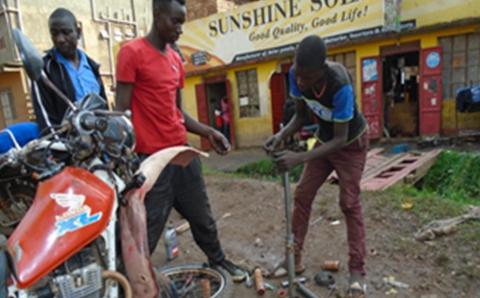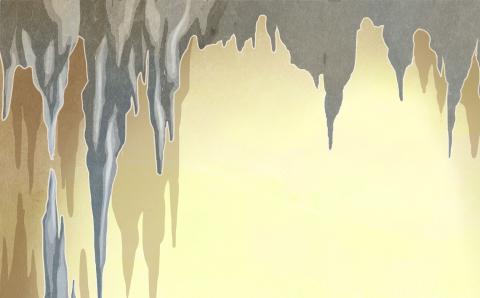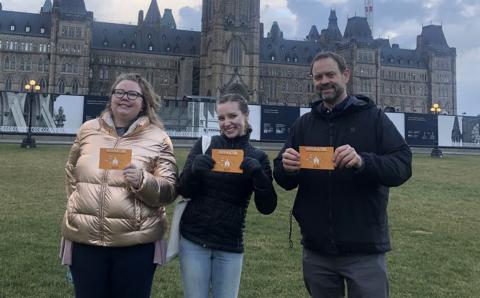My morning commute is a short one—approximately a five-minute walk followed by a 10-minute shuttle ride. It’s just enough time to wonder what I might encounter that day: perhaps a crisis of faith following a heart attack or a prayer request for a bowel movement. My vocation as a hospital chaplain brings me up close and personal with all of the grittiness that makes up our everyday lives—and our spirituality.
Spirituality tends to become heightened in the hospital environment. There are, of course, moments of spiritual lament. A sudden accident leading to the tragic loss of a life can shock loved ones into asking, “Where is God?” or leave family members begging for prayers of miraculous intervention. Some patients lie in the intensive care unit, their breath slowly being stolen by COVID while chaplains pray with their family members via Zoom.
There are also joys in the halls of the hospital. There are smiles of thanks to God as a patient who hasn’t walked for two months takes her first steps in rehab. The birth of a new life in the labor and delivery unit can bring tears of praise for a Creator who ushers life into the world. Peace fills the rooms where I bring communion to patients who find comfort in taking part in this sacred meal together.
My own hospital has spaces designated for meditation or worship. We have an ornate, awe-inspiring Catholic chapel, a meditation room with stained glass that faces Mecca, and a labyrinth for quiet reflection. But spiritual vibrancy creates holy spaces all over the hospital, sanctifying spaces regularly used for collecting blood, stool samples, or various other bodily fluids.
It is not always easy to envision God at work in a hospital. The pace can seem too fast, the language less sacred and too scientific, and the environment entirely too sterile. It can be challenging to find God’s presence in situations that feel hopeless or terribly sad. But it is an immense gift to be able to sit alongside people as they use their spirituality to traverse tough diagnoses or long roads to recovery. It’s striking to see examples every day of the ways in which our spirituality becomes integral in moments of crisis or calm. It can be even more moving to realize the ways in which these hospital moments clarify the ways we use our faith.
This is the sacred gift of being called to hospital ministry: knowing that I will witness prayers of lament and joy inextricably woven together. It is a ministry that bears witness to both creation and the mysteries of death—sometimes in the span of a single workday. There is no way to predict the questions or people that God will place in my path during any given day. Perhaps this is the ultimate gift of such a vocation: learning that the Spirit of God is present in ways that are surprising and unpredictable.
It reminds me that we are all called to be present to the Spirit in one another daily. Each day as I make my way to work and prepare to enter the uncertainties of the hospital, I think about how God accompanies me as I meet patients right where they are, in the grittiness of it all. We are called to recognize and affirm that God is in our midst in times of joy, anxiety, fear, happiness, or anger. God is present for all of it—and what a gift to have a Creator who wades into the grit of life alongside us.
Editor's note: The Christian Reformed Church has more than 150 chaplains serving in hospitals, military settings, prisons, and other places around the world. Please continue to pray for them.
About the Author
Hannah D. Olson is a staff chaplain at a hospital in Minnesota. She is an approved candidate for ordination in the Evangelical Lutheran Church in America and a graduate of St. Olaf College, Princeton Theological Seminary, and Luther Seminary.









